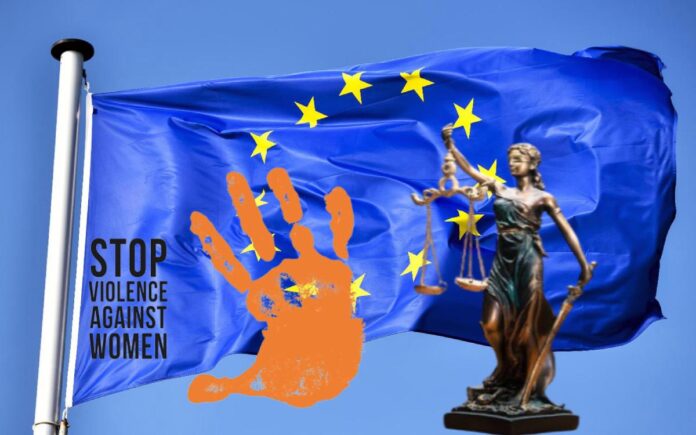Brussels: The European Union Council has given its seal of approval to a groundbreaking EU directive aimed at combating violence against women and domestic abuse. However, the absence of a consensus on defining rape within the text has sparked controversy.
The legislation mandates all EU member states to criminalize various forms of violence, including female genital mutilation, forced marriage, and cyber violence such as the non-consensual sharing of intimate images.
Having received prior approval from the European Parliament in April, the green light from member countries marks the final step before the directive is enacted into law.
Belgium’s Justice Minister, Paul Van Tigchelt, emphasized that this law will ensure robust sanctions against perpetrators across the EU and comprehensive support for victims.
In addition to criminalizing acts of violence, the directive includes provisions for preventing violence against women and domestic violence, setting standards for victim protection. Specific regulations outline the assistance and protection measures that member states must provide to victims.
Also Read | Indian Election Body Orders Removal of BJP’s Video Targeting Muslims and Opposition
The legislation aims to simplify the reporting process for victims, especially for cybercrimes, by facilitating online reporting. Moreover, EU countries must ensure that children receive professional assistance when reporting crimes, prioritizing their safety over notifying alleged perpetrators if the crime involves a person with parental responsibility.
To safeguard victims’ privacy and prevent re-victimization, member states are mandated to limit the use of evidence regarding the victim’s past sexual conduct in criminal proceedings, allowing it only when relevant and essential.
Aligned with the overarching goal of creating a safer future, preventive measures focus on raising awareness about the root causes of violence against women and domestic abuse, with an emphasis on the importance of consent in sexual relationships.
Data from the European Commission reveals that one in three women in the 27-nation bloc has experienced some form of violence, often at the hands of intimate partners. Additionally, an estimated 600,000 women in Europe have undergone female genital mutilation.



